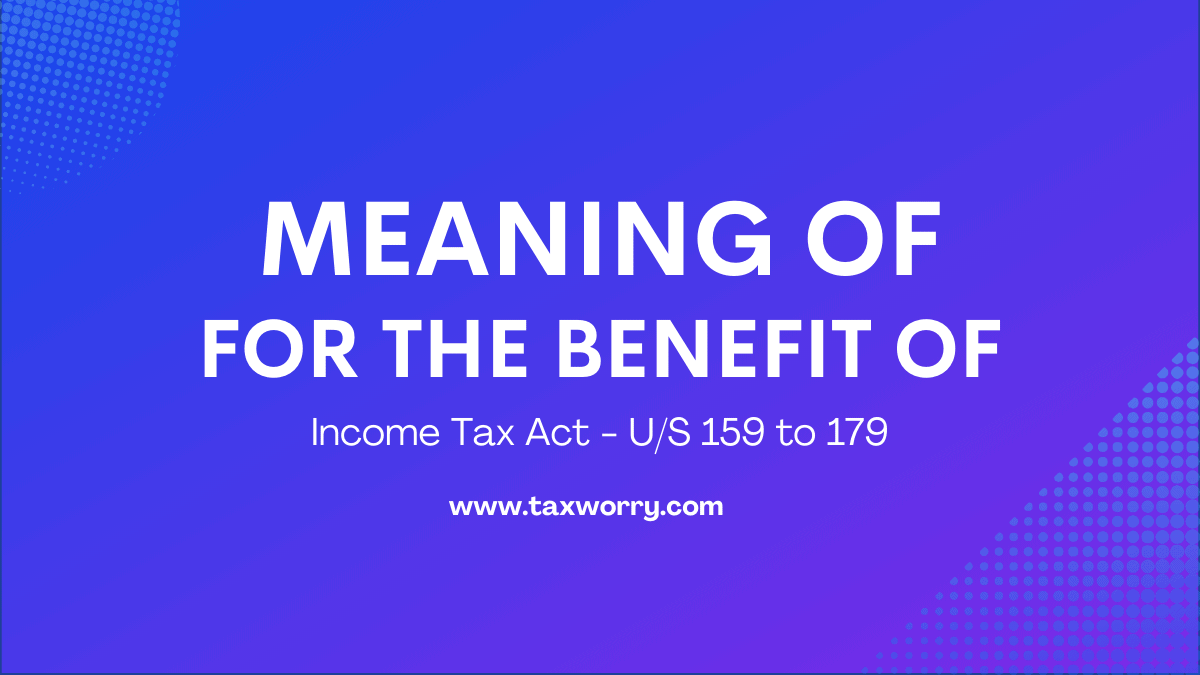Meaning of tax terms
Meaning of “For the benefit of”
The meaning of for the benefit of under section159 to 179 of the Income Tax Act is not defined in the act itself. But we can take guidance from decisions by various high courts. Here are excerpts of courts orders in which the Hon’ble High Court tried to explain the meaning of for the benefit of.

Meaning of for the benefit of defined by court
The phrase ‘for the benefit of‘ used in section 159 to 179 of the Income Tax Act came up before hon’ble Gujarat High Court in CIT Vs. Gosar Family Trust [1991] 189 ITR 18 (GUJ.) and it explained
Meaning : The phrase ‘for the benefit of’ used in section 164(1) is not a phrase of art at all but a general phrase which has to be interpreted in view of the general nature of the subject-matter which is being dealt with by this section.
Section 159 of Income Tax act
Legal representatives.
159. (1) Where a person dies, his legal representative shall be liable to pay any sum which the deceased would have been liable to pay if he had not died, in the like manner and to the same extent as the deceased.
(2) For the purpose of making an assessment (including an assessment, reassessment or recomputation under section 147) of the income of the deceased and for the purpose of levying any sum in the hands of the legal representative in accordance with the provisions of sub-section (1),—
(a) any proceeding taken against the deceased before his death shall be deemed to have been taken against the legal representative and may be continued against the legal representative from the stage at which it stood on the date of the death of the deceased;
(b) any proceeding which could have been taken against the deceased if he had survived, may be taken against the legal representative; and
(c) all the provisions of this Act shall apply accordingly.
(3) The legal representative of the deceased shall, for the purposes of this Act, be deemed to be an assessee.
(4) Every legal representative shall be personally liable for any tax payable by him in his capacity as legal representative if, while his liability for tax remains undischarged, he creates a charge on or disposes of or parts with any assets of the estate of the deceased, which are in, or may come into, his possession, but such liability shall be limited to the value of the asset so charged, disposed of or parted with.
(5) The provisions of sub-section (2) of section 161, section 162, and section 167, shall, so far as may be and to the extent to which they are not inconsistent with the provisions of this section, apply in relation to a legal representative.
(6) The liability of a legal representative under this section shall, subject to the provisions of sub-section (4) and sub-section (5), be limited to the extent to which the estate is capable of meeting the liability.
Updated up to Finance Act 2021
